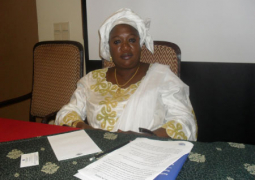Over 6,000 communities have chosen to abandon the practice of female genital mutilation/cutting (FGM/C), according to a joint United Nations programme designed to eliminate this practice, and the number is growing.
UNFPA, the United Nations Population Fund, and UNICEF, the United Nations Children’s Fund, are partners in a joint effort to end FGM/C, a practice with serious immediate and long-term health effects and a clear violation of girls’ and women’s fundamental human rights.
“We are working in 12 out of 17 priority African countries and have seen real results - the years of hard work are paying off with FGM/C prevalence rates decreasing,” said Nafissatou Diop, Coordinator of the UNFPA-UNICEF Joint Programme on FGM/C.
“In
Three million girls face FGM/C every year in
The UNFPA-UNICEF joint programme, set up in 2008, encourages communities to collectively abandon FGM/C. It uses a culturally sensitive approach, including dialogue and social networking, leading to abandonment within one generation. The programme is anchored in human rights and involves all groups within a community, including religious leaders and young girls themselves. Rather than condemn FGM/C, it encourages collective abandonment to avoid alienating those that practice it and instead bring about their voluntary renunciation.
To mark the International Day Against Female Genital Mutilation/Cutting, UNFPA and UNICEF are renewing their commitment to put an end to the practice, and call on the global community to join in this critical effort. They also believe that FGM/C can be abandoned in one generation, which would help millions of girls and women to live healthier, fuller lives.
“Three years into the programme, more than 6,000 communities in Ethiopia, Egypt, Kenya, Senegal, Burkina Faso, Kenya, the Gambia, Guinea and Somalia have already abandoned FGM/C,” according to a joint statement by UNFPA Executive Director Dr. Babatunde Osotimehin and UNICEF Executive Director Anthony Lake. “Social norms and cultural practices are changing, and women and men in communities are uniting to protect the rights of girls. UNFPA and UNICEF are working with partners to end this harmful practice in one generation and we believe that reaching this goal is possible.”



